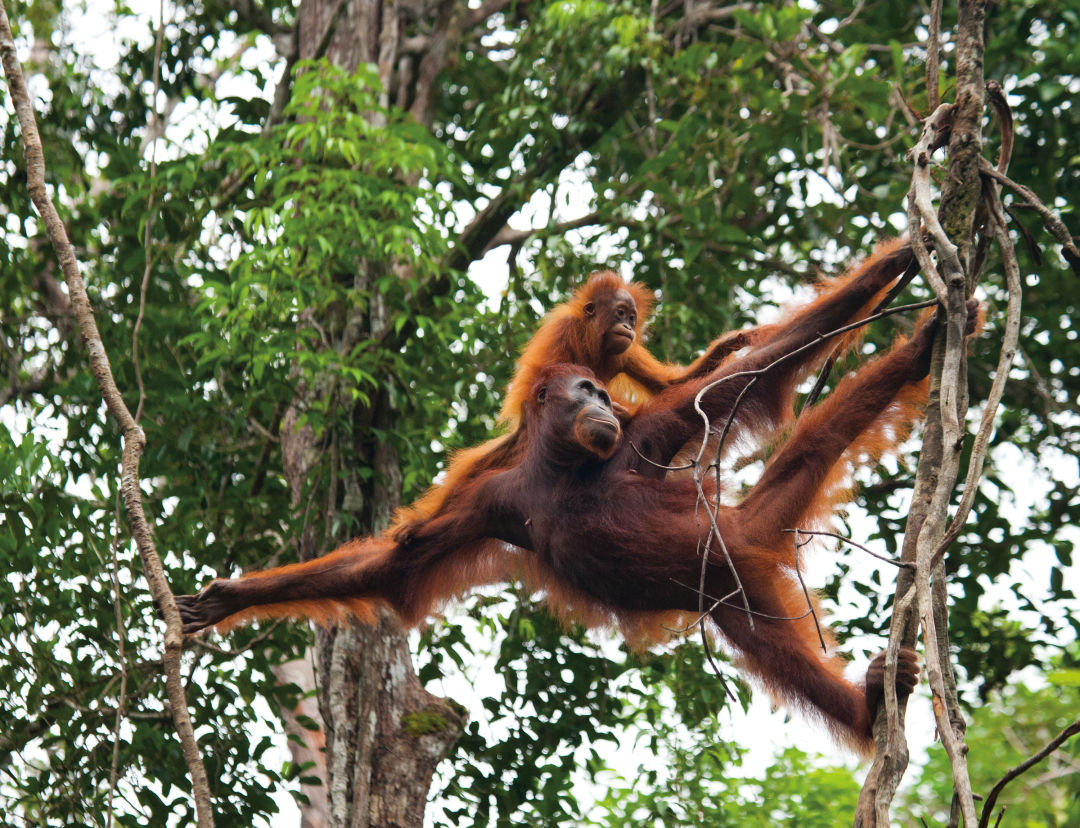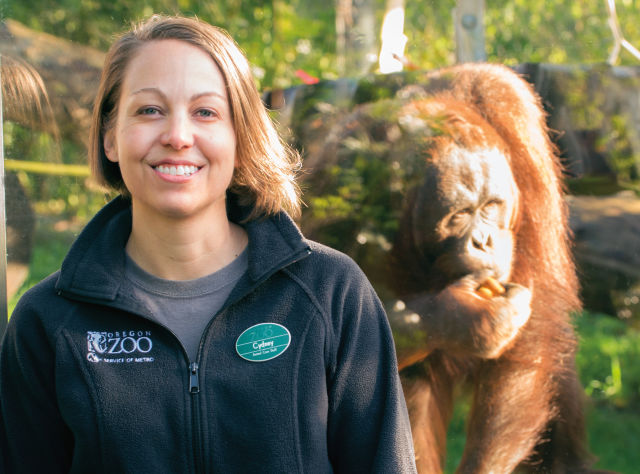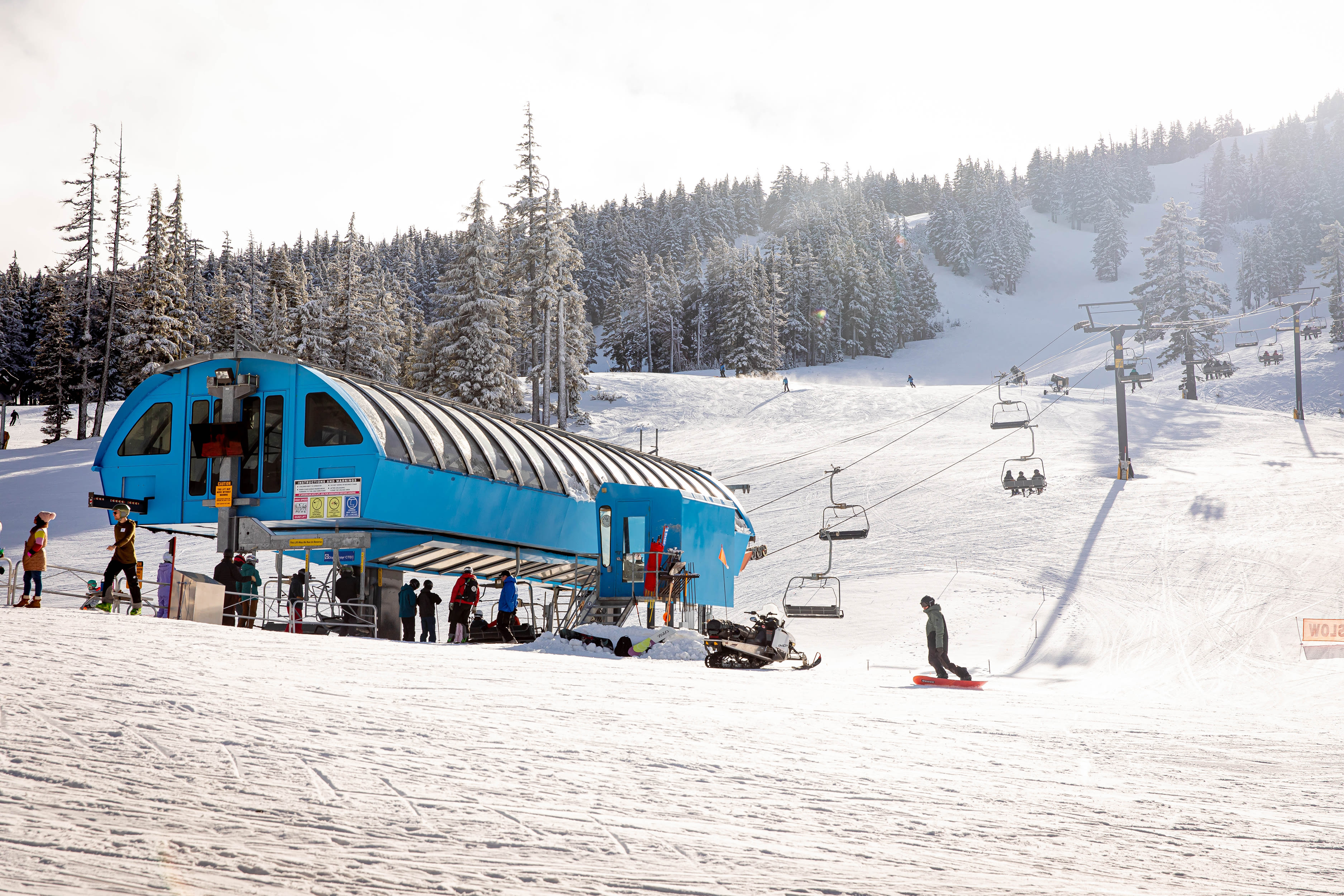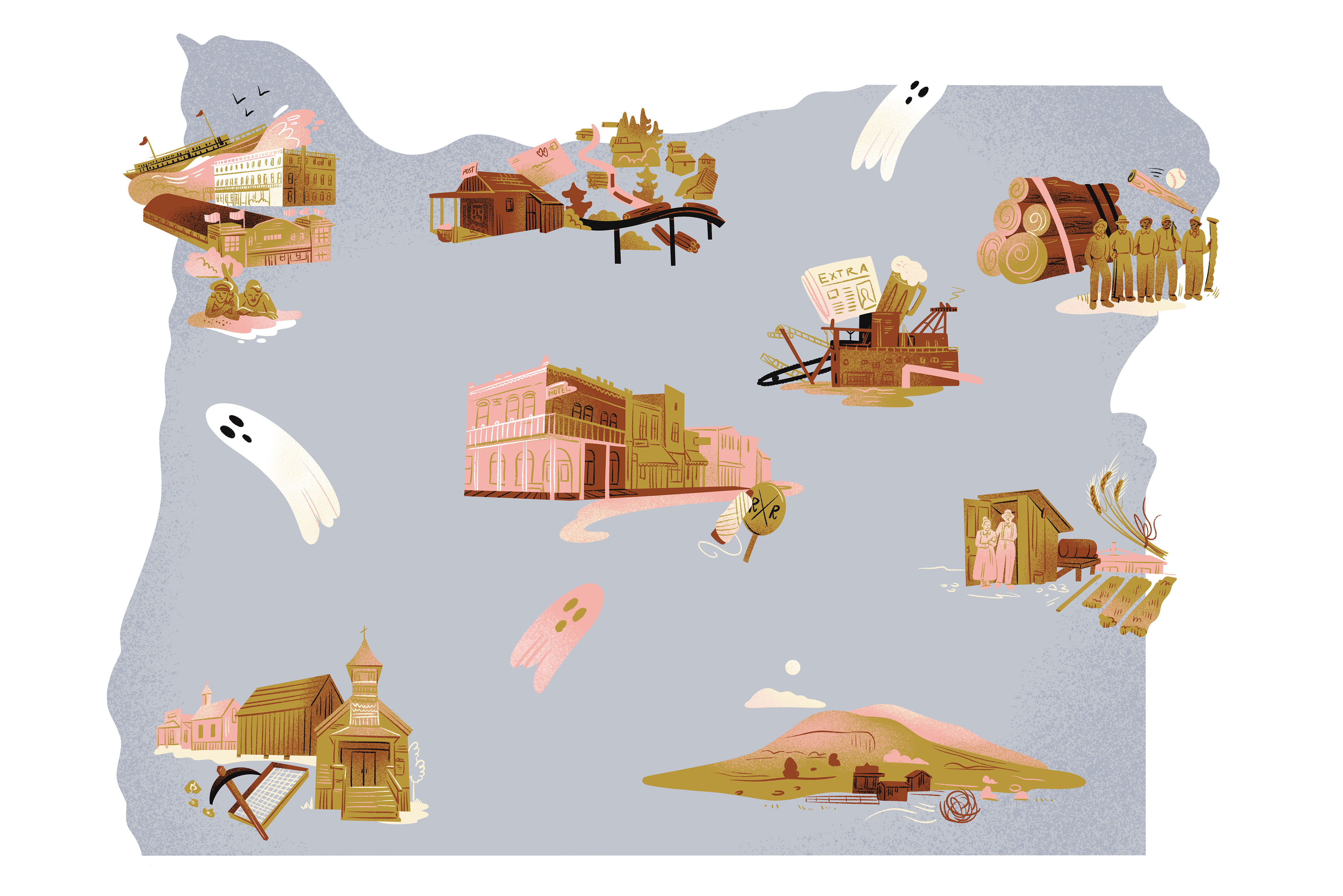How a Portland Zookeeper Helped Rescue Endangered Orangutans

“Primates are challenging, because they’re so smart,” Cydney Sines says. “It’s kind of like working with a 4-year-old; if you accidentally reinforce negative behavior, you’ll get more of it.”
It’s a journey into a lush, tropical wilderness with five orangutans in tow, each 150 to 300 pounds. You’re in jeeps, bumping and jangling over rough jungle trails. You switch vehicles; then it’s another four hours of hard driving through palm oil plantations and jungle and logging camps. Finally, you pass the last sign of civilization and you’re out of the jeep on foot, hiking another four hours, with a crew hauling the orangutans’ crates on bamboo poles. A tiny boat takes you across a river, and soon you’re there: the orangutans’ new home, far from the reach of humans like you.
“It was intense: the mud, the humidity, the leeches,” says the Oregon Zoo’s Cydney Sines of the expedition last fall. “The process to get them there was so emotionally and physically draining.”

Oregon Zoo’s Cydney Sines hanging with Bob the orangutan
Image: Courtesy Michael Durham
Sines was helping to release apes orphaned or displaced by habitat destruction back into the wild, sometimes after years of rehabilitation training called “forest school.” A primate keeper at the zoo, Sines teamed up with the Borneo Orangutan Survival Foundation, an Indonesian nonprofit that has worked at orangutan conservation since 1991 and cares for hundreds of apes at a time. The Portland native began her career in the ’90s as a ZooTeen, a high school conservation program the zoo runs every summer. Now 36, she’s been working with primates for the past five years, including three orangutans, Bob, Kitra and Inji, who reside in the zoo’s Red Ape Reserve primate habitat.
“Primates are challenging, because they’re so smart,” she says. “It’s kind of like working with a 4-year-old; if you accidentally reinforce negative behavior, you’ll get more of it. Also they’re going to catch you if you make a mistake, and they can easily train you if you’re not careful.”
Inside the habitat, Bob reaches for a magazine, one of the many enrichment tools the keepers provide to keep their charges stimulated.
“These guys will look through them for treats we hide inside,” says Sines. “The chimpanzees will actually sit and look through page by page.”
Just wait till they see this issue.
FYI: Used as a texture enhancer in everything from instant ramen noodles to conditioners to margarine, palm oil is the most produced and traded vegetable oil globally. Demand is expected to double by 2050, to 240 million tons a year, with the bulk of expansion devastating orangutan habitats in Indonesia and Malaysia. Want to reduce your impact on ape habitats? The World Wildlife Fund suggests looking for RSPO or GreenPalm labels on the products you buy. (More tips at worldwildlife.org)




